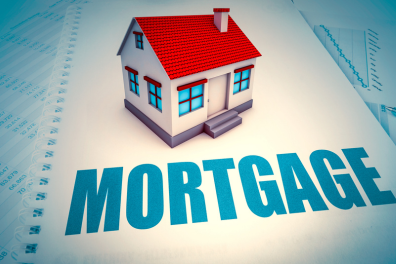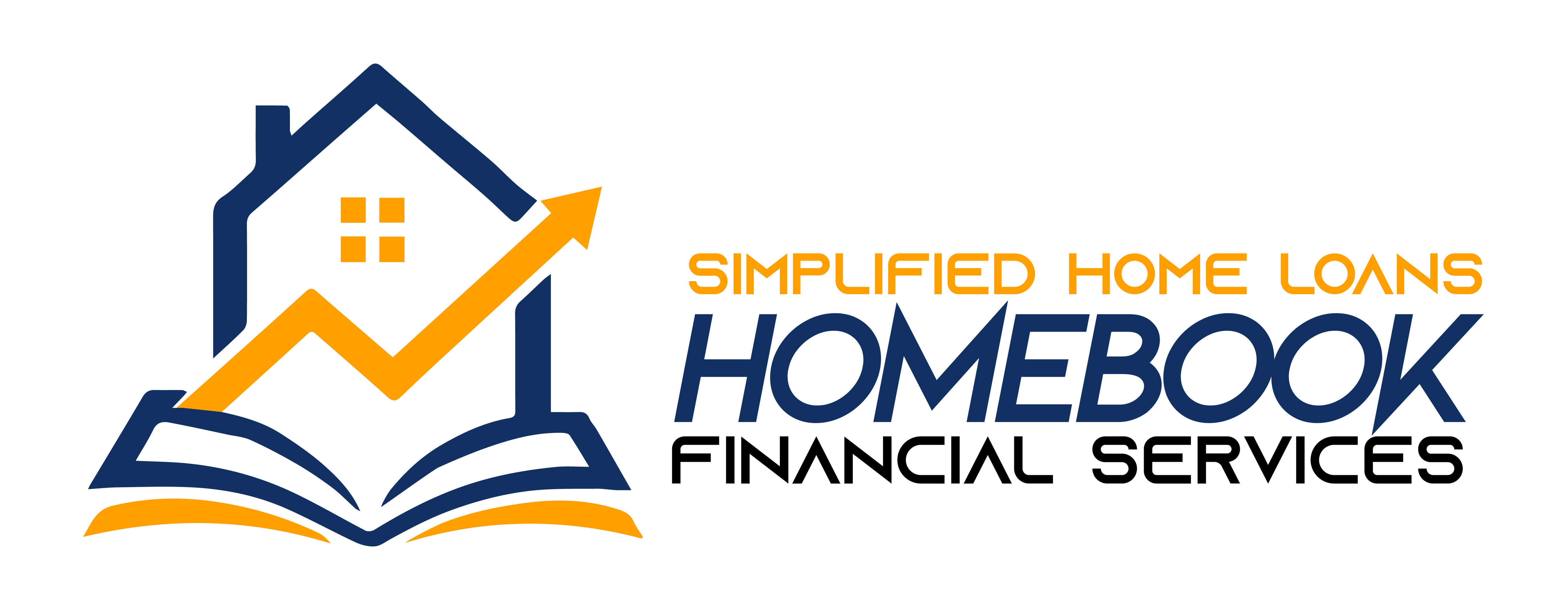Quick and easy
Mortgage loans
We provide dependable and stress-free mortgage loan solutions to help you own your dream home with ease.
What are mortgage loans?
With a mortgage loan, you can secure funding from a lender to purchase or refinance a home. In return, the property is used as collateral. In the event of non-payment, the lender can take over the property to recover the outstanding amount.
Mortgage loans are a popular option for homebuyers, as they allow you to own a home without paying the full amount upfront. Instead, you repay the loan over time in monthly installments, which typically include both the principal amount and interest.
At HomeBook, we make this process easier by helping you compare and apply for mortgage loans from multiple trusted banks and financial institutions in one place. Whether you’re buying your dream home or investing in property, we connect you with competitive loan options tailored to your needs.
Key Features of Mortgage Loans:
- Long-term repayment: Typically between 10 to 30 years
- Fixed or floating interest rates
- Used for purchasing, constructing, or refinancing property
- Backed by the property as collateral
Types of Mortgage Loans in India
India offers various types of mortgage loans to suit different financial needs, whether you’re purchasing a home, funding a renovation, or using property for business purposes. At HomeBook, we help you compare and apply for these loans through leading banks, making the process easy and transparent.
Purpose-Based Mortgage Loans
Home Loans

For purchasing new, resale, or under-construction properties. Offers long tenures (up to 30 years) with fixed or floating interest rates.
Loan Against Property (LAP)

Secure funds for personal or business needs by mortgaging a residential or commercial property.
Home Construction Loans

For building a home on your plot, disbursed in stages as construction progresses.
Home Improvement Loans

Finance renovations like painting, plumbing, or structural upgrades.
Commercial Property Loans

Used to acquire office spaces, shops, or warehouses.
Balance Transfer and top-up Loans

You can transfer your existing home loan to another lender for better terms or borrow more on the same property.
Legal Types of Mortgages
Simple Mortgage

The borrower mortgages the property as security, but retains ownership of it. If the loan is not repaid, the lender has the legal right to sell the property through court intervention.
Mortgage by Title Deed Deposit

In urban areas, this is a common occurrence. The borrower deposits the property’s title documents with the lender as collateral without formal registration.
Mortgage by Conditional Sale

The borrower sells the property to the lender because the sale becomes void if the loan is repaid on time; otherwise, it becomes final.
At HomeBook, we simplify the mortgage process by helping you choose the right type of loan, backed by expert support and multiple banking partners. Start exploring your loan options with confidence and understanding today.
Eligibility Criteria for Low-Cost EMI Home Eligibility Criteria for Mortgage Loans in Telangana, Hyderabad
At HomeBook, we collaborate with leading banks and financial institutions to make the mortgage loan process easier for customers throughout Telangana, particularly in Hyderabad. Understanding the eligibility criteria is essential, whether purchasing a new home or seeking a loan against your existing property. This step will help you navigate your options more effectively and find the right loan for your needs.
Age:
Applicants should be between 21 and 70 years old. Salaried individuals typically have a maximum age limit of 60 for applying, while self-employed individuals may be eligible to apply until the age of 70, subject to the bank’s specific policies
Income:
- To qualify for a mortgage loan, you need a stable and regular source of income to prove your ability to repay.
- For salaried individuals: Lenders typically look for a minimum monthly salary, which can range from ₹15,000 to ₹25,000 or more, depending on the lender and the city in which you live. You will need to provide documentation such as salary slips from the last 3-6 months, Form 16, and bank statements that show salary credits.
- For self-employed individuals: A minimum annual income is usually required, typically between ₹1.8 Lakh and ₹3.6 Lakh or more. Lenders will evaluate your income by reviewing your Income Tax Returns (ITR) from the last 2-3 years, along with financial statements and bank statements.
Employment Status:
- Salaried individuals typically need to show stable employment with at least 2-3 years of continuous service, including a particular duration with their current employer.
- For those who are self-employed, having a minimum of three years of experience in their current business or profession, along with a consistent income record, is essential.
Credit Score and Credit History:
- A credit score of 700 or above is essential for improving your chances of mortgage approval. A score of 750 or higher is preferred. It reflects your creditworthiness and repayment behavior, making you a more attractive candidate to lenders.
- Additionally, having a clean credit history, free from defaults or significant payment delays, is essential. This not only improves your chances of loan approval but can also secure you better interest rates.
Existing Financial Obligations:
- Lenders will assess your Debt-to-Income Ratio (DTI), which is the percentage of your monthly income that goes toward paying off existing debts, including other loans and credit card bills. A smaller debt-to-income ratio shows that you’re more financially fit to repay the loan. Ideally, your total EMIs (including the new mortgage) should not exceed 50-60% of your monthly income.
- Having a healthy debt-to-income (DTI) ratio can significantly improve your chances of loan approval, as it shows lenders that you are not overleveraged and can comfortably afford to take on additional debt. Maintaining a low debt-to-income ratio (DTI) is an essential aspect of managing your finances, especially when planning to take out a mortgage.
Property Type:
Loans are available for residential, commercial, and industrial properties, provided they are legally clear and fall within the bank’s approved areas. This allows borrowers to secure financing for a wide range of real estate investments. It’s essential to ensure that the properties meet all legal requirements and regulations to avoid any complications during the loan process.
Loan Amount and Loan-to-Value (LTV) Ratio:
- The loan amount you are eligible for depends on your income, repayment capacity, and the property’s value.
- One key measure is the Loan-to-Value (LTV) ratio, which represents the percentage of the property’s market value that the lender is willing to finance. Generally, this ratio ranges from 75% to 90%. A higher down payment can lower the LTV ratio, potentially enhancing your eligibility for the loan.
Documentation:
You must provide multiple documents as evidence of your identity, residence, financial status, job, and property ownership.
Required Property Documents:
- Property Link documents of 25 years or 30 years
- EC-(Encumbrance Certificate) of 25 years or 30 years History
- HMDA Layout/ GP Layout-LRS/DTCP Layout
- Plan copy and permission copy
- Property Tax Receipt
EMI Calculator
Calculate your Mortgage Loan in a simpler way to manage your budget
0 INR
0 INR
0 INR
Features of Mortgage Loans in Telangana, Hyderabad
Features:
- Secured Loan: The loan is secured against your residential or commercial property, which serves as collateral.
- Higher Loan Amount: Unlike unsecured loans, secured loans often allow you to borrow a larger amount, determined by the market value of the property used as collateral.
- Longer Tenure: Mortgage loans typically offer repayment terms of 10 to 30 years. This allows for smaller, more manageable monthly installments.
- Flexible Repayment Options: Many lenders provide options for prepayment, part-payment, and customized repayment plans to suit individual needs.
- Attractive Interest Rates: The interest rates on mortgage loans are typically lower than those of unsecured loans, making it a more economical way to borrow large sums.
- Loan Purpose Flexibility: The funds from mortgage loans can be used for a variety of purposes, including buying a home, expanding a business, funding education, covering medical expenses, or managing personal expenses.
- Top-Up Facility: Existing mortgage borrowers may be eligible for a top-up loan without needing a separate application.
- Balance Transfer Option: You can transfer your existing mortgage loan to another bank offering better interest rates or terms.
Custom Repayment Options: Lenders offer customizable repayment plans, including options for prepayment, partial payment, and tailored Equated Monthly Installment (EMI) schedules to suit individual financial situations.
Benefits:
- Affordable Homeownership: Mortgage loans make it possible for individuals and families to purchase a home without needing the full amount upfront. Instead of saving for years to buy a house in cash, you can pay a small percentage as a down payment and borrow the rest from a lender. This allows you to become a homeowner much sooner and start building your future.
- Building Equity: Every mortgage payment you make helps build equity, or your ownership share in the home. Over time, this equity can increase through principal repayment and possible appreciation in property value. This increase in equity can contribute significantly to your overall net worth and provide you with financial flexibility in the future, such as the option to tap into it through a home equity loan or line of credit if needed.
- Appreciation in Property Value: Real estate often appreciates over time. Your home could be worth more in the future, which can boost your financial position
- Predictable Monthly Payments: Your monthly payment amount stays consistent with a fixed-rate mortgage, from start to finish. This stability helps with budgeting and financial planning since you don’t have to worry about fluctuating housing costs like you might with rent.
- Tax Advantages: Depending on the specific regulations and your circumstances, you may be eligible for tax benefits associated with mortgage loan interest payments and principal repayments, which can potentially reduce your overall tax burden. It’s always wise to consult with a financial advisor regarding the specific tax implications in Telangana.
- Credit Score Improvement: A mortgage is a long-term loan, and consistently making payments on time shows lenders that you are responsible with credit. Over time, this can improve your credit score, making it easier to get approved for other types of loans with better terms.
- Investment Potential: A home isn’t just where you live, and it’s a potential investment that can grow in value over time. As property values rise, so can your long-term wealth.
- Stability and Freedom: Owning a home provides long-term security and autonomy, eliminating concerns over rental agreements while allowing full creative freedom over your living space.
FAQ’S
- Yes, you can! Mortgage loans can be used to finance personal or business needs by pledging your property as collateral.
- They’re often used for expenses such as education, medical emergencies, weddings, or business purposes. Just review the terms carefully before applying.
A loan against property, also known as a mortgage loan, is a type of secured borrowing that allows individuals and businesses to use their existing real estate assets, such as residential or commercial properties, as collateral to obtain funds. In this arrangement, the property serves as collateral, providing security to the lender. This enables borrowers to access a significant loan amount, often a percentage of the property's market value, which can be used for various financial needs, all while retaining ownership of their valuable asset. The loan is typically repaid over a specified period through Equated Monthly Installments (EMIs).
You can usually borrow up to 50% to 75% of your property's market value through a loan. This amount can vary depending on several factors, including the type of property, its location, the borrower's income, and the lender's specific policies. It's essential to consider these elements when assessing how much you can borrow against your property.
To pay off a mortgage early, consider making additional payments directly toward the principal, either regularly or as larger lump sums. This strategy helps reduce the interest accrued over time. Be sure to consult your lender to understand any potential prepayment penalties or special terms and conditions. Smart budgeting and utilizing unexpected financial gains, such as bonuses or tax refunds, can also significantly accelerate the repayment process.
Our Partner








